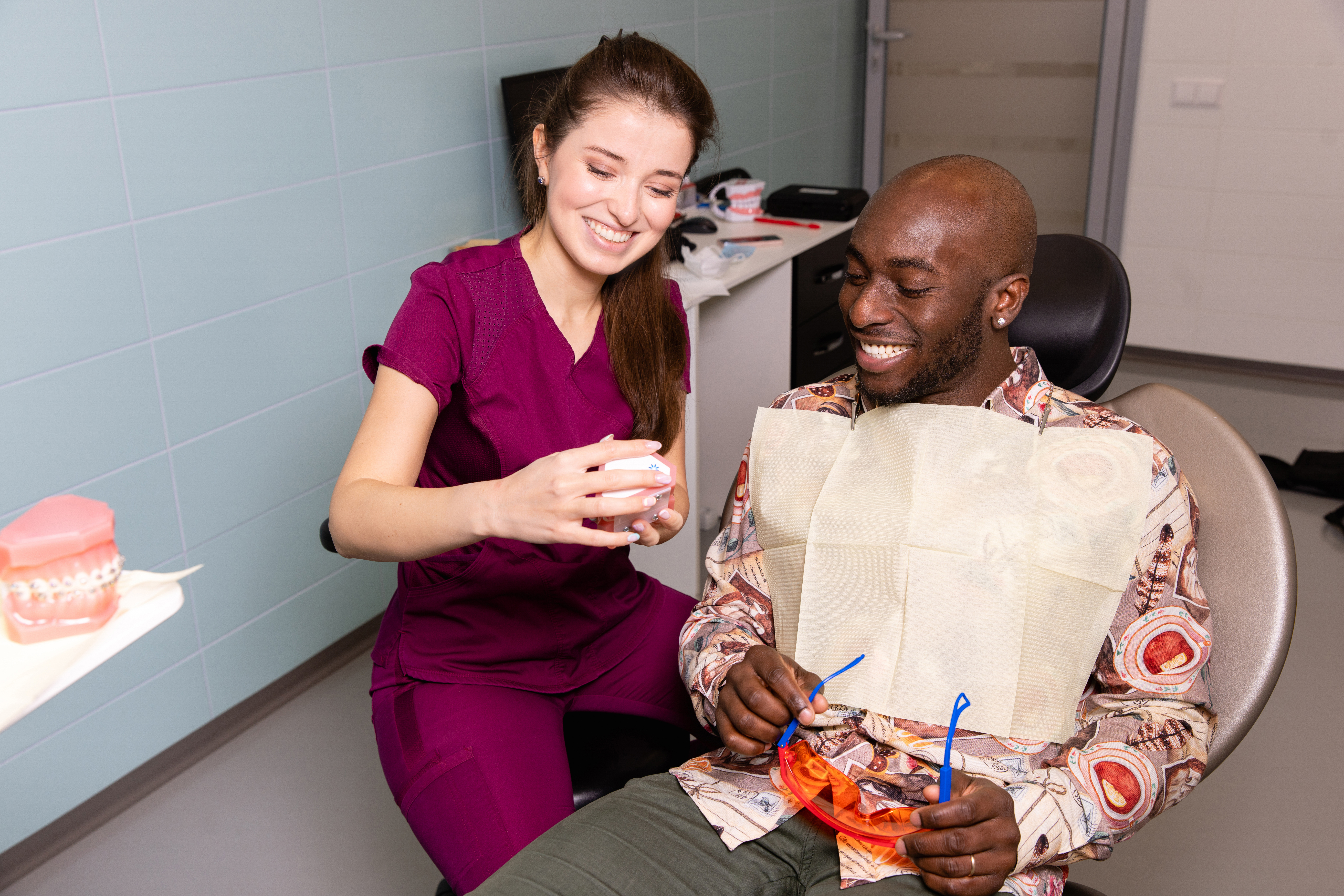- What effects can COVID-19 have on my oral health?
- How are healthcare experts linking long-haul symptoms to COVID-19?
- Could something else be causing long-haul symptoms?
- What should you do if you have long-haul symptoms of COVID-19?
If the COVID-19 pandemic has taught us anything, it’s that we still have so much to learn about the effects it can have on our overall health and well-being.
It is well-documented that COVID-19 mainly affects the lungs, but many other people have reported a high fever, loss of taste and sense of smell, problems with breathing, and a decrease in energy that lasts for weeks. All of these symptoms have been accepted by the medical community as being linked to the coronavirus.
To add to the growing list of COVID-19’s side effects are reports that the virus can also result in weakened teeth and gums, or teeth that have become discoloured, broken, or fallen out. This has become known as “long-haul” symptoms of COVID-19, meaning health issues related to the virus that linger on long after the patient has recovered from the illness.
Our dental team at Yonge Eglinton understand that medical science has yet to confirm a link between coronavirus and oral health, yet we are closely following anecdotal claims of long-haul symptoms and published literature on this subject.
What effects can COVID-19 have on my oral health?
Survivor Corps is a non-profit organization that, according to its website, is dedicated to “connecting, supporting, educating, motivating, and mobilizing COVID-19 survivors to support all medical, scientific, and academic research” into combatting the pandemic. They also have a Facebook group where its members can share stories about their COVID-19 experience, many of which deal with the long-haul effects of the virus. Some of these stories deal with oral health issues.
Here is a sampling of what people are reporting:
- 8 top and 6 bottom teeth that are loose and are at risk of falling out, which their dentist suggested “could be due to my chronic inflammation from their long-haul COVID symptoms”
- Bottom and back teeth turning translucent and gray 6 months after recovering from COVID-19, despite brushing twice a day with an enamel toothpaste and flossing daily
- Needing several root canals several months after recovering from COVID-19
- Bleeding and receding gums and bone loss after recovering from the coronavirus, despite having an excellent oral health history
- Two cracked, broken molars in someone who has never had problems with their teeth before contracting COVID-19
These real-time reports also include complaints of tongue lesions, tongue pain, and gum pain, as well as non-dental issues such as skin rash, hair loss, and what’s become known as COVID toes.
There are no definitive links of any of these long-haul effects to the coronavirus, however some healthcare experts have weighed in on some of the possibilities.
How are healthcare experts linking long-haul symptoms to COVID-19?
There have been a few theories introduced that may explain the sudden changes in a COVID survivor’s oral health, although it’s crucial to remember that, because so much is still unknown about this virus, these are only theories with no solid medical research to corroborate them:
- Blood clotting: COVID-19 has been known to attack and damage blood vessels, which can hamper blood flow to our heart, lungs, brain, kidneys, and other organs that have been compromised in coronavirus patients. Healthcare experts surmise that a lack of blood flow to our gums and the pulp in our teeth can cause pain and decay, leading to oral health complications long after the virus is gone.
- Mouth infection: The coronavirus is known to latch onto a part of our cells known as the ACE2 receptors. Certain parts of our bodies are flush with these receptors, including the lungs, which is why COVID-19 can cause severe respiratory damage. The mouth also contains a high amount of ACE2 receptors, leading some healthcare experts to suggest that a direct infection of the mouth with the COVID-19 virus can cause severe oral health problems. They also point to evidence that the Coxsackievirus virus also directly affects dental health.
The arguments are interesting and warrant further study, but it’s too early to confirm their veracity.
Could something else be causing long-haul symptoms?
It’s perfectly understandable to attribute sudden symptoms which you have no history of having to COVID-19, a disease that boasts its share of unknowns. However, the lockdown also caused many people to change their habits, which could also bring the same unpleasant results.
In terms of oral health issues, here are some other reasons people may have been having new complaints:
- You’re fighting an illness: When you’re sick, it’s still important to take care of your teeth. However, brushing and flossing might be the last thing on your mind while you’re lying in bed fighting off the coronavirus. Not looking after your teeth for a period of time can lead to oral health problems down the road.
- Stress response: The continuing pandemic has caused a dramatic increase in stress. Many people respond to stress by clenching their jaw and grinding their teeth, especially at night. This can cause chipped, broken, or cracked teeth.
- Changes in nutrition: People sometimes respond to the fear of getting sick, economic uncertainty, and the constant barrage of negative media reports by indulging in comfort food. An excess of sugary, sticky, and crunchy food can lead to all sorts of oral health issues.
- Not visiting the dentist: During the lockdown, patients were unable to receive non-emergency dental treatment in Ontario. After the lockdown eased and dentist offices were allowed to reopen with heightened infection control protocols in place, many people were still fearful of getting infected. Not having your teeth professionally cleaned, scaled, and polished for a while will cause them to look stained, as well as allow any underlying issues to go untreated. This can lead to periodontal disease, loose teeth, and other oral health issues.
- Using too many whitening products: If you whiten your teeth too often as a result of not visiting the dentist, they might begin to appear grey or translucent.
What should you do if you have long-haul symptoms of COVID-19?
It’s too soon to make a direct, indisputable connection between COVID-19 and your oral health. With all of the information popping up in the news and online, it’s easy to become confused or concerned when you’ve recovered from coronavirus and are having problems with your teeth or gums.
The best plan of action if you suspect you have any oral-related long-haul symptoms is to share your concerns with your dentist. Our dentists at Yonge Eglinton dental are current with the latest research, allowing us to answer all of your questions and develop a plan to give you back your beautiful smile.
Can COVID-19 Harm My Teeth and Gums? Talk to the dental team at Yonge Eglinton Dental in Toronto
Talk to us when you have concerns about COVID-19 and your oral health. We’ll be sure to treat you with respect, care, and empathy while helping you show the world the healthiest smile possible.
Give us a call today at 416-932-2222 or book an appointment online. We’ll be happy to see you!
Concerned about visiting the dentist? Read about how we protect the health and safety of our patients and staff so your family can seek proper dental care with peace of mind.








